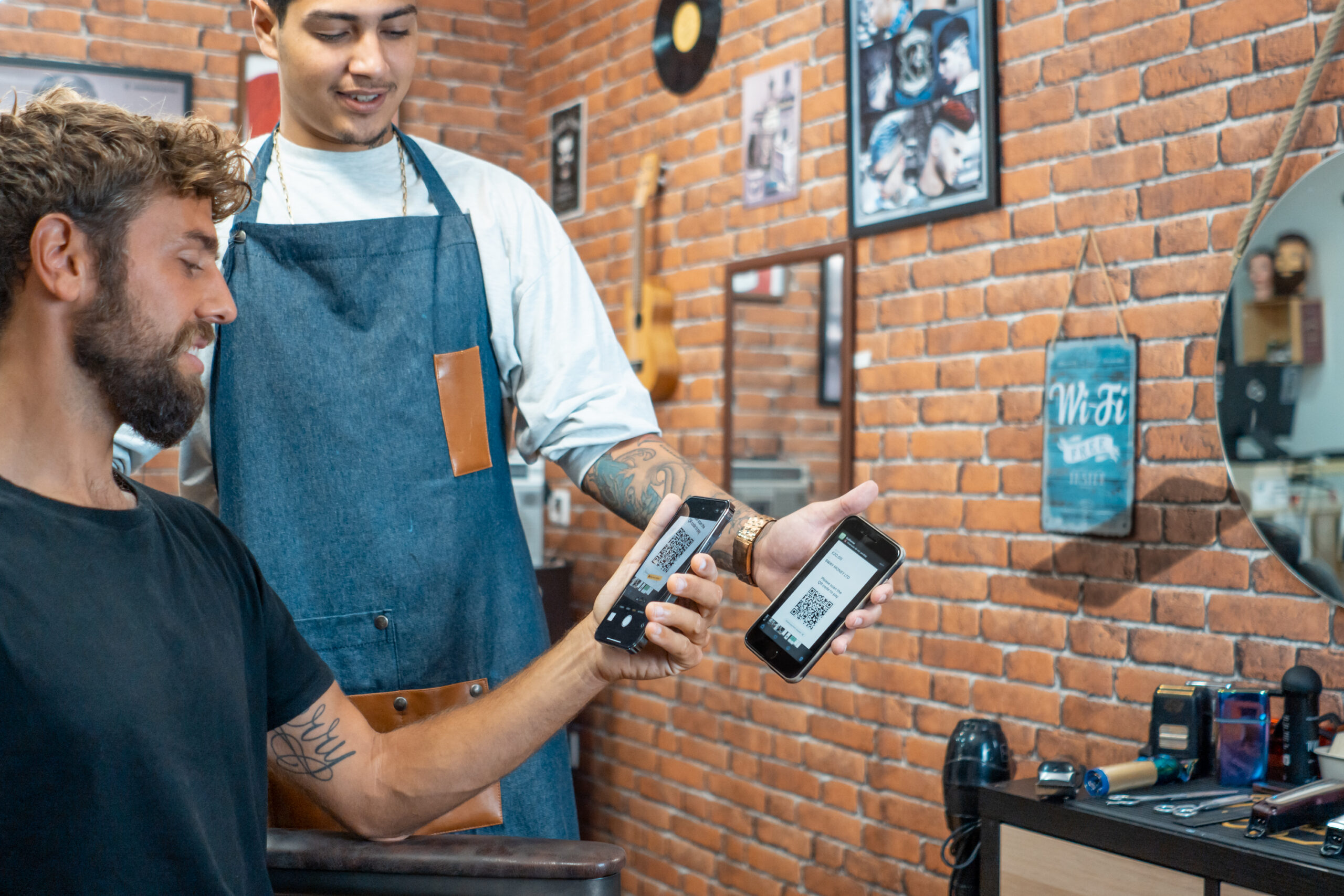The total turnover of small and medium-sized businesses was £2.18 trillion in 2022, demonstrating their seriousness. While customer service and marketing are integral to running a business, offering customers multiple payment options is just as important.
Fortunately, you can adopt many in-person small business payment options to ensure payment flexibility for your customers. Open banking payments undeniably take the crown, considering their fast transaction speeds and high security.
But a customer-friendly business would not limit itself to a single payment method. Below, we do a round-up of the best small business payment processing options for today’s ventures.
SME Payment Options
While cards are the first payment option that comes to mind, they’re not always preferred by customers due to their security risk. Below, we look at the top five in-person small business payment options.

Open Banking Payments
Open banking is a secure and convenient way to move money from one account to another (called account-to-account payments, or A2A) without having to rely on the card network.
A third party typically facilitates this process by creating an easy-to-use system that connects directly to the bank. The wide adoption of open banking is associated with the Second Payment Services Directive (or PSD2) by the European Union, allowing third parties to access consumer accounts safely and securely to initiate payments or collect transactional data. Some say this is the future of banking and payments.
One of the most notable advantages of open banking is the ease and simplicity of payment. The payment is typically initiated by a QR Code that the consumer simply needs to scan with their phone before authorizing the payment.
Moreover, open banking systems are incredibly speedy, allowing immediate fund transfers. Most importantly, small businesses do not need a card-reading machine. All you need is a phone and a service like Sway.
With Sway, you can convert your phone into a payment terminal. Download the app, connect your bank to it, and generate unique transaction QR Codes for every transaction. Customers make QR code payments, eliminating the hassle of carrying a card-reading machine, reducing paper use, and lowering the risk of fraud.
Even better, open banking via Sway comes at a fraction of the cost of card-based transactions. Small businesses taking card payments spend nearly £4200 a year on average on card fees. With Sway, you can save all this money and start at as little as £5 per month.
Download the iOS or Android app to start your 14-day free trial.
Cash and Cheque
Cash has long been used as the primary payment method in small and large businesses. It’s still the second most commonly used payment method in the UK, accounting for 15% of all payments.
Cash payments are fast, secure, and require no third party. But then again, it is not always the best option, given its vulnerability to theft and fraud.
Many people don’t usually carry too much cash with them these days. As a small business that only accepts cash payments, you’ll lose on potential customers who would have otherwise bought something if they had an alternative payment option.
The same applies to cheques. Payment by cheque accounted for a meagre 6% of all transactions in the UK in 2020. So, it’s evident that customers are looking for alternative payment methods.
Cards
Cards remain a popular small business payment system due to their ubiquitousness and convenience. They are also cheaper compared to cheques.
However, as a small business, you must pay a fee for every transaction. Depending on the card company, the fee typically ranges from 1.5% to 3.5%. That means for every £100 you earn, you pay £1.5 to £3.5 in card fees. It’s an expense that can add up over the year – a cost you could have saved by using open banking instead.
Email Invoices With Manual Bank Transfers
Consumers might consider manual bank transfers to be secured since they don’t have to route their payment through an external third party. But it’s still an inconvenient method of payment. Customers have to log in to their accounts, enter their credentials, and transfer funds manually to the merchant’s bank account for every purchase.
For small businesses, manual bank transfers can be time-consuming and inconvenient. For one, you’ll have to manually reconcile these payments in your system. You might even have to pay for a small business payment software to keep track of email invoices every month.
Small business payment apps are another expense that increases the cost of running a budding business. Plus, research shows that nearly 50% of invoices small businesses issue to customers are paid late, resulting in distress and cash flow disruption.
Direct Debit
Direct debit payment is a good option for subscription or service-based small businesses that get recurring payments from customers. On the consumer’s end, it reduces the likelihood of them being charged late fees. It’s also hassle-free and flexible.
Since the payment is scheduled for a predetermined date, your business does not have to worry about late payments. But for a small business, this could also mean waiting for the payment to get through. Direct debit payments can take 3 to 5 days, disrupting a small business’s constant flow of money.
Takeaway
It can’t be denied that customers prefer multiple payment options rather than being limited to a single choice. But with the decreasing use of cash or cheques and the security risks associated with card payments, open banking has emerged as a promising small business payment gateway in the UK. The number of UK open banking users has risen exponentially from 3 million users in January 2021 to 5 million in January 2022.
Sway allows small businesses to adopt a contract-free, cheap, quick, and safe payment option that only requires a phone and a short 2-minute setup. Check out Sway today for seamless transactions.

